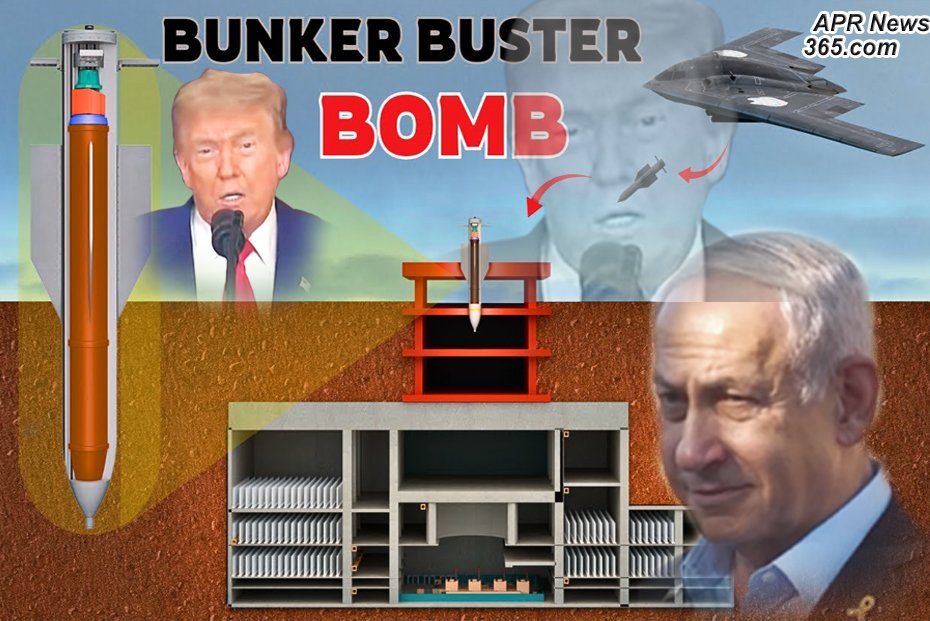US vs Iran 2025: Massive Bombs, Nuclear Targets & World in Fear | The Full Story Uncovered
US Strikes on Iran: Global Reactions, Regional Concerns, and Pakistan’s Perspective
The recent US strikes on Iran’s nuclear facilities have escalated tensions in the already fragile Middle East. These strikes not only risk further conflict in the region but also pose serious challenges for neighboring countries like Pakistan, which could be directly impacted by any widening of hostilities.
Iran’s Response and International Oversight
Iranian officials strongly condemned the strikes, labeling them as part of a larger conspiracy involving the International Atomic Energy Agency (IAEA). Iran’s Atomic Energy Organization clarified that all its nuclear facilities were operating under the supervision of the IAEA as part of its commitments to the Non-Proliferation Treaty (NPT). Iranian authorities emphasized that prior to the strikes, these facilities had been evacuated, ensuring that no radioactive material was released. Nearby populations, therefore, faced no immediate threat. The IAEA later confirmed that radiation levels in Iran remained unchanged after the strikes.
The Weaponry Used by the US
Reports indicate that the US employed GBU-57 Massive Ordnance Penetrator bombs, designed to destroy heavily fortified underground facilities. These bombs, weighing approximately 30,000 pounds and containing around 6,000 pounds of explosives, targeted key uranium enrichment centers in Iran. Among the main targets were the Fordow facility, located beneath mountains in Qom province, the Natanz enrichment plant, and facilities near Isfahan believed to house enriched uranium stockpiles.
Regional Implications and Pakistan’s Worries
Experts in Pakistan have voiced deep concern over the situation. Many warn that if the conflict spreads, Pakistan could face a massive influx of refugees from the affected regions, placing additional strain on the country’s already limited resources. The specter of regional instability could also have severe economic and security implications for Pakistan.
Global Political and Diplomatic Views
Many analysts and former diplomats have criticized the strikes as violations of international law and basic principles of justice. They argue that the use of force in this manner mirrors the flawed justifications that led to the Iraq war in 2003. Several commentators have called on the Organization of Islamic Cooperation (OIC) to send a high-level delegation to the US in a bid to defuse the escalating situation through dialogue.
Domestic Backlash in the US
Within the United States, the strikes have triggered widespread protests and criticism from political leaders. Citizens in various states have taken to the streets, chanting slogans against war and demanding a diplomatic resolution. Prominent senators have accused the President of overstepping his authority, arguing that only Congress has the constitutional power to authorize military action. There are growing calls for accountability and for ensuring that any future military decisions are subject to proper legislative oversight.
Israel’s Role and the Issue of Double Standards
Commentators have pointed out the irony of Israel’s position. Unlike Iran, Israel has not signed the NPT and refuses international inspections of its nuclear facilities. Yet, Israel continues to accuse Iran of nuclear ambitions. Analysts argue that these double standards only fuel further instability in the region and undermine global non-proliferation efforts.
Pakistan’s Official Stance
Pakistan’s political and religious leaders have condemned the US strikes, describing them as reckless and dangerous for regional peace. They stress that such actions are tantamount to aggression and risk plunging the Middle East into deeper chaos. Pakistan continues to advocate for solutions grounded in international law and United Nations resolutions. The country’s leadership calls on all parties to exercise restraint and prioritize dialogue over force.
Internal Security Measures in Pakistan
Given the rising tensions, Pakistan’s internal security agencies have been placed on high alert. Authorities have activated emergency helplines to assist citizens during any crisis that might arise as a result of regional spillover. Provincial governments have instructed law enforcement and highway patrol agencies to be vigilant, ensuring public safety across key routes and population centers.
The Broader Impact and the Way Forward
The US strikes on Iran’s nuclear facilities have once again shown that military actions often lead to unintended consequences. The international community faces a critical moment where diplomacy must be given a chance. There is an urgent need for global powers and organizations to work collectively towards de-escalation. Dialogue, mutual respect, and adherence to international norms remain the best path to preserving peace and stability in the Middle East and beyond.

